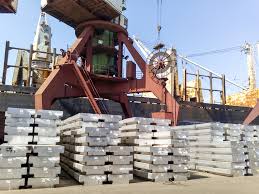The three ’Elephants in Room’ in EU-India relations

EU Observer - 03 August 2020
The three ’Elephants in Room’ in EU-India relations
By Shairee Malhotra
The EU-India virtual summit took place last month with three ’elephants in the room’.
The largest elephant was China. Both India and the EU have traditionally followed policies of cooperation with China, but ties have plumbed new depths during the pandemic.
India was the recipient of a deadly border attack by Chinese soldiers along the ’Line of Actual Control’.
China’s ’mask diplomacy’ in EU member states has raised alarm bells within the EU.
On the Belt and Road Initiative (BRI) too, Indian and European concerns are converging.
China’s exploitation of divisions within Europe are eerily similar to India’s experiences in its South Asian neighbourhood, where India’s recent tensions with Nepal, and Chinese ’debt trap’ diplomacy in Pakistan and Sri Lanka are challenging India’s position as South Asia’s hegemon.
Despite difficulties being on the exact same page on China - India shares borders and territorial issues, and Europe has massive economic engagements with China - the two have woken up to the reality of increasing Chinese influence in their neighbourhoods and are re-examining their equations with Beijing.
This shared wariness is compelling them to diversify their relationships to balance the dragon.
Given this context, most areas of cooperation discussed during the summit included a China angle - strengthening the multilateral rules-based global order (and checking Chinese influence in international institutions); digital cooperation and developing global standards for 5G and AI (a reference to Huawei and China); security and maritime cooperation including preserving stability in the Indian Ocean region, cooperation in the Indo-Pacific, and enhancing connectivity (as alternatives to the BRI).
Trade
A highlight of the summit was the decision to establish a high-level ministerial dialogue on trade and investment. This could potentially break the long-standing deadlock in the EU-India Free Trade Agreement (FTA) negotiations - the second elephant in the room.
Despite the positive momentum in the relationship’s strategic aspects, re-kindling the FTA negotiations is important. The world has changed significantly since earlier negotiating attempts. And mitigating the economic fallout from the pandemic is an urgent priority for most nations.
The China factor could enable newfound readiness towards pragmatism and potential concessions on some of the sticking points, based on India and Europe’s parallel quests to reduce economic dependence on China.
Plus, after Brexit, India’s traditional launchpad into the European market will no longer be there, compelling India to diversify into European cities as entry-points into the single European market.
And yet, trends of economic nationalism are engulfing the world. EU officials worry about India’s recent pronouncements on becoming "self-reliant" as tilting towards further protectionism.
These come amidst popular calls to boycott Chinese products despite India lacking alternatives on trade.
Contrarily, the world’s largest trading bloc the EU, has concluded FTAs with several important economies including Vietnam, the Mercosur countries, Japan and Singapore.
The potential of an EU-India FTA is huge - the German think tank Bertelsmann Stiftung estimates this at raising India’s GDP annually by 1.3 percent.
Plus, if India were to become more economically competitive, it would impact the wider balance of power in Asia, thereby also advancing both European and Indian strategic interests.
Human rights
The summit’s postponement in March due to Covid-19 was a blessing in disguise for the partnership.
World events, since then, have distracted from the European Parliament’s tabled resolutions in February, critiquing India’s actions in Kashmir and the Citizenship Amendment Act (CAA).
Even though voting was eventually deferred, the episode acted as a dampener on a relationship long-struggling to exploit its potential.
India dreads foreign meddling and traditionally conducts diplomacy under the ambit of ideas of non-alignment and strategic autonomy.
But this willingness to judge Indian democracy’s imperfections is especially hard-hitting given Europe’s substantive engagement with China despite the latter’s blatant authoritarianism, mistreatment of Uighur Muslims and excesses in Hong Kong.
And yet, the global impact of the pandemic has pushed the EU and India closer, substantiating their perceptions of the other as valuable partners.
Even so, the issue of human rights was certainly the third elephant in the room.
The CAA was raised, albeit not strongly, with EU Council president Charles Michel emphasising his trust in Indian institutions, and leaders agreed to reconvene the Human Rights Dialogue.
The EU-India Strategic Partnership is based on shared values, and this values rhetoric is becoming more salient given unprecedented threats facing the rules-based multilateral order.
European professions about ’cooperation with China but shared values with India’ indicate how the values discourse is again becoming central.
Thus, calls for the partnership to be conditional on sufficient human rights will periodically resound from any of the EU’s many institutions.





